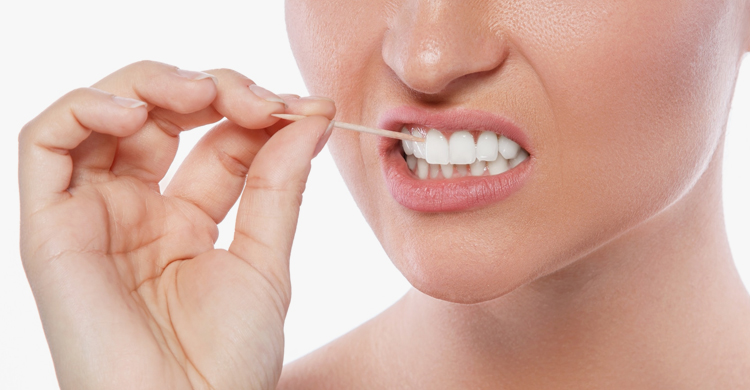
We all know brushing and flossing at home are crucial for maintaining oral health but professional dental cleanings are just as important. You might have heard the common advice: “Visit your dentist every six months.” But is that the golden rule for everyone? Not quite.
Let’s break down how often you really need dental cleanings, why they’re so important, and what factors might mean you need to visit more or less frequently.
What Happens During a Dental Cleaning?
A dental cleaning is more than just getting your teeth polished. During a routine cleaning, your dentist;
• Removes plaque and tartar buildup
• Polishes your teeth to remove surface stains
• Evaluates your gums for signs of disease
• Checks for cavities and other dental issues
Tartar can’t be removed by brushing alone it needs to be professionally scraped off. That’s why even people with a good oral hygiene still need cleanings.
The Six-Month Rule: A Good Starting Point;
Most dentists recommend dental cleanings twice a year, or every six months. This schedule allows them to catch early signs of cavities, gum disease, and other issues before they become bigger problems.
However, according to dental professionals, this isn’t a one size fits all rule. The ideal frequency depends on your individual oral health, habits, and risk factors.
When You Might Need Cleanings More Frequently
Some people need professional cleanings more often than every six months. You might fall into this category if you:
• Have a history of gum disease: Periodontitis requires ongoing care. Cleanings every 3–4 months are often recommended to prevent relapse.
• Smoke or use tobacco: Tobacco use increases tartar buildup and risk of gum disease.
• Have diabetes or other systemic conditions: Conditions like diabetes can make you more vulnerable to oral infections.
• Wear braces or retainers: These appliances make cleaning at home more difficult, increasing your risk of plaque accumulation.
• Are prone to cavities or have a high-sugar diet: More frequent cleanings help prevent decay.
• Have dry mouth (xerostomia): This condition reduces saliva, which helps neutralize acids and wash away food debris.
When Annual Cleanings Might Be Enough
On the flip side, some people may be able to stretch their visits to once a year. This is typically only the case for individuals who:
• Maintain excellent oral hygiene at home
• Have no history of gum disease
• Have a low sugar diet and minimal plaque buildup
• Are at low risk for cavities or dental problems
Even if you’re in this low-risk category, skipping your annual checkup altogether isn’t recommended. Subtle issues like hairline cracks in teeth, early gum recession, or oral cancer signs may go unnoticed without a professional exam.
What About Deep Cleanings?
A deep cleaning also called scaling and root planing is different from a regular cleaning. It’s typically recommended when you have moderate to severe gum disease, where bacteria have begun affecting the roots of your teeth.
Unlike routine cleanings, deep cleanings involve going below the gum line to remove hardened plaque and smooth the tooth root to help the gums reattach. Depending on the severity of your case, you may need these every 3–4 months for a while.
What If You Skip Cleanings?
Skipping dental cleanings can lead to more than just stained teeth or bad breath. Over time, it increases your risk of:
• Gum disease
• Tooth loss
• Painful infections
• Expensive dental procedures like root canals or implants
• Systemic health issues (yes, poor oral health has been linked to heart disease and diabetes complications)
We all know brushing and flossing at home are crucial for maintaining oral health but professional dental cleanings are just as important. You might have heard the common advice: “Visit your dentist every six months.” But is that the golden rule for everyone? Not quite.
Let’s break down how often you really need dental cleanings, why they’re so important, and what factors might mean you need to visit more or less frequently.
What Happens During a Dental Cleaning?
A dental cleaning is more than just getting your teeth polished. During a routine cleaning, your dentist;
• Removes plaque and tartar buildup
• Polishes your teeth to remove surface stains
• Evaluates your gums for signs of disease
• Checks for cavities and other dental issues
Tartar can’t be removed by brushing alone it needs to be professionally scraped off. That’s why even people with a good oral hygiene still need cleanings.
The Six-Month Rule: A Good Starting Point;
Most dentists recommend dental cleanings twice a year, or every six months. This schedule allows them to catch early signs of cavities, gum disease, and other issues before they become bigger problems.
However, according to dental professionals, this isn’t a one size fits all rule. The ideal frequency depends on your individual oral health, habits, and risk factors.
When You Might Need Cleanings More Frequently
Some people need professional cleanings more often than every six months. You might fall into this category if you:
• Have a history of gum disease: Periodontitis requires ongoing care. Cleanings every 3–4 months are often recommended to prevent relapse.
• Smoke or use tobacco: Tobacco use increases tartar buildup and risk of gum disease.
• Have diabetes or other systemic conditions: Conditions like diabetes can make you more vulnerable to oral infections.
• Wear braces or retainers: These appliances make cleaning at home more difficult, increasing your risk of plaque accumulation.
• Are prone to cavities or have a high-sugar diet: More frequent cleanings help prevent decay.
• Have dry mouth (xerostomia): This condition reduces saliva, which helps neutralize acids and wash away food debris.
When Annual Cleanings Might Be Enough
On the flip side, some people may be able to stretch their visits to once a year. This is typically only the case for individuals who:
• Maintain excellent oral hygiene at home
• Have no history of gum disease
• Have a low sugar diet and minimal plaque buildup
• Are at low risk for cavities or dental problems
Even if you’re in this low-risk category, skipping your annual checkup altogether isn’t recommended. Subtle issues like hairline cracks in teeth, early gum recession, or oral cancer signs may go unnoticed without a professional exam.
What About Deep Cleanings?
A deep cleaning also called scaling and root planing is different from a regular cleaning. It’s typically recommended when you have moderate to severe gum disease, where bacteria have begun affecting the roots of your teeth.
Unlike routine cleanings, deep cleanings involve going below the gum line to remove hardened plaque and smooth the tooth root to help the gums reattach. Depending on the severity of your case, you may need these every 3–4 months for a while.
What If You Skip Cleanings?
Skipping dental cleanings can lead to more than just stained teeth or bad breath. Over time, it increases your risk of:
• Gum disease
• Tooth loss
• Painful infections
• Expensive dental procedures like root canals or implants
• Systemic health issues (yes, poor oral health has been linked to heart disease and diabetes complications)




